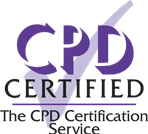
When Depression Won’t Go Away
Are you struggling because your depression won’t go away? Hit a brick wall and out of ideas?
You’re not alone. In fact many people diagnosed with major depression have what’s known as treatment-resistant depression (TRD).
If you’ve tried self-help strategies and first-line treatments such as antidepressants (at least 2 different antidepressants for a significant amount of time at a significant dose) but you are still experiencing symptoms such as:
- Low mood
- Little energy
- Poor sleep or sleeping too much
- Not enjoying the activities you normally would
- Withdrawing from people
- Trouble concentrating
- Poor short-term memory
- Feeling anxious
- A sense of dread or impending doom
- Irritability
- Overwhelm
Then you may have treatment-resistant depression.
So what can you do if your depression won’t go away? Read on and we break it down.
Depression checklist: Have you tried…
Dr Andy Zamar, Consultant Psychiatrist and Medical Director says: “Depression can be an overwhelming and exhausting condition in which we struggle to do the very things that could help us get better.
“If you live with depression you may have heard ignorant encouragements to ‘snap out of it’, ‘cheer up’ or ‘just count your blessings’. If it were that easy then depression wouldn’t be a recognised global health crisis!”
When you’re crushed under the weight of depression and overwhelm, it’s very common to think you’ve tried everything. But have you?
Take a look at our depression strategy checklist. All these have an evidence base behind them. Are there any that could be worth a go?
1. Exercise: No catch and no nasty side effects – exercise is one of the best antidepressants known to man. Lifting your mood while dialling down anxiety, aerobic exercise releases happy endorphins while bringing down stress chemicals like cortisol and adrenalin.
2. Get outdoors: Research shows that less time spent outdoors is associated with higher depression and anxiety scores. And many studies have demonstrated links between time out in nature and better mental health. Fresh air, green space, and sunlight are all superfoods against depression.
3. Meditate: Yes it sounds too good to be true but numerous research studies have demonstrated that regular meditation can improve depression. And studies using MRI scanning have demonstrated meditation’s positive effects on the brain. But you don’t have to become a monk or try to levitate – start small, perhaps try an app like Headspace or Calm. As little as five minutes a day can make a difference.
4. Reach out to others: Force yourself to be social! Yes it’s the last thing you feel like doing when you’re depressed, but the more we withdraw, the more people-averse we become. It’s not easy but it’s probably easier than it feels right now. Join a walking club, do some volunteering, reach out to old friends. Studies show that social networks and emotional support protect against depression.
5. Try to eat a brain-friendly diet: It’s well-established that there is a relationship between unhealthy eating patterns and depressive symptoms. In addition large-scale studies have shown that high adherence to a Mediterranean diet is linked to a lower risk of depression. Think plentiful consumption of vegetables, legumes, fruit, nuts and complex carbohydrates as well as other lean proteins (especially fish), while avoiding processed foods and sugar.
6. Stick to a routine: Research has demonstrated that sticking to a routine in line with our circadian rhythm (being active and exposed to sunlight in the daytime and going to bed at nighttime) is better for mental health. Force yourself to set your alarm clock. Get out into the sunlight. Try to keep to your daily routine, meal structures and chores as much as possible. Sometimes the things that seem the worst are actually the best thing for us.
7. Practice self-affirmation: Yes, it might seem cheesy and it’s the last thing you feel like doing! But research shows that regular, consistent self-affirmation can bolster mental health by lowering stress hormone levels and promoting activity in your brain’s reward-related regions. And there is evidence it can be helpful in lowering depression. You could try writing about your ‘key values’ and the things that are important to you in life, or writing a series of ‘I am’ statements. (If this seems too hard, try thinking of what your best friend might say about your good qualities).
8. Talking therapies: When it comes to beating depression, talking therapy is not an overnight silver bullet, but in the long run it does wonders for many people with depression. The talking therapy types with the biggest evidence-base for depression are cognitive behavioural therapy (CBT) and interpersonal therapy (IPT).
For many people who have been told they’re depressed, antidepressants and CBT are ineffective and can even exacerbate the problem.
As experts in mental health and biological psychiatry, here at The London Psychiatry Centre we have worked for many years to understand why that is and to develop effective treatment protocols for people whose depression won’t go away.
If your depression persists, it could be because you have treatment-resistant depression that requires a different approach. Or it could be because you actually have an undiagnosed bipolar disorder.
When depression won’t go away: a leading-edge depression treatment that works
If your depression won’t go away then you may have what clinicians call treatment-resistant depression.
We generally define treatment-resistant depression when a person has tried at least two different antidepressants and it hasn’t helped.
Here at The London Psychiatry Centre we have a highly-successful protocol for working with treatment-resistant depression. This involves rTMS (rapid transcranial magnetic stimulation) – an effective, safe, evidence-based, drug-free solution for people with treatment-resistant depression. As the first clinic in the UK to use rTMS, we have treated the most patients and are the most experienced in delivering it. You can learn more about rTMS here.
Having said that, many people who have found antidepressants and/or talking therapies unhelpful depression treatments actually do not have treatment-resistant depression at all – they have an undiagnosed bipolar disorder.
When depression won’t go away, it might actually be bipolar disorder
Most people don’t know this, but many patients diagnosed with depression actually have a type of bipolar disorder – in fact some studies indicate this figure could be around 50%. This is what’s known as subthreshold bipolar disorder.
In the UK, most clinicians aren’t trained to spot the different mood cycling patterns of subthreshold bipolar disorders. And media representations of bipolar are dominated by bipolar I depictions (the ‘classic form’) where a person experiences episodes of mania for a week or more at a time. (You can learn more about the different forms of bipolar here.)
Accordingly, subthreshold bipolar disorders are frequently misdiagnosed as depression. And conventional depression treatments (like CBT or antidepressants) have been shown to be generally ineffective or even harmful for people with bipolar.
So if you’re finding that your depression won’t go away with depression treatments, it may be because you actually have an undiagnosed bipolar disorder.
Conventional depression treatments generally don’t work for people with bipolar disorder. Bipolar disorder is a different condition and requires different treatment.
Here at The London Psychiatry Centre, we have pioneered a successful leading-edge treatment for people with bipolar disorder. The evidence-based Zamar Protocol ® (Precision guided high-dose thyroid hormones and rTMS protocol) boasts a 96.4% remission rate and has been described as ‘life-changing’ by our patients – as noted by the Care Quality Commission (CQC). Patients experience minimal – if any – side effects.
The Zamar Protocol ® (Precision guided high-dose thyroid hormones and rTMS protocol) utilises a combination of precision medicine, mitochondrial treatment, thyroid medicine, and non-invasive rTMS (Repetitive Transcranial Magnetic Stimulation).
Patients are getting their lives back. Could you?
Find out more about our treatment programme here. Or make an appointment by calling 020 7580 4224 or email info@psychiatrycentre.co.uk


